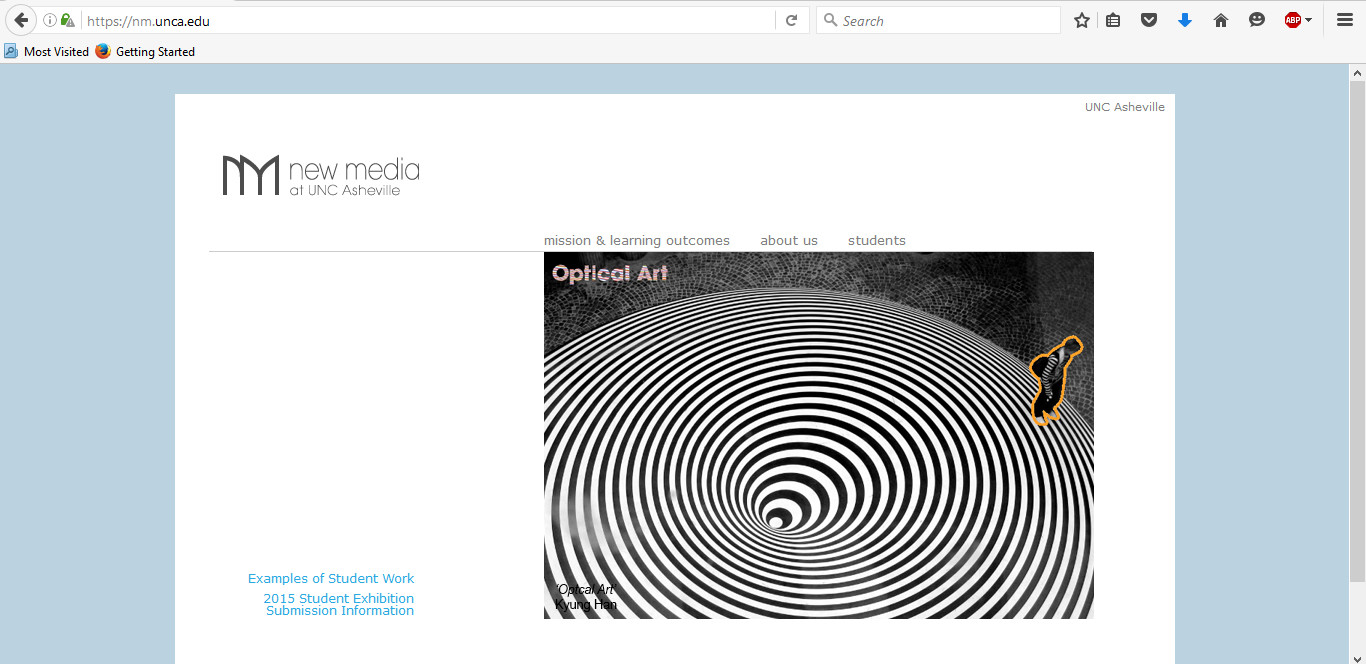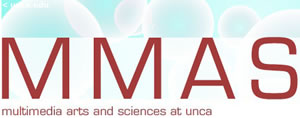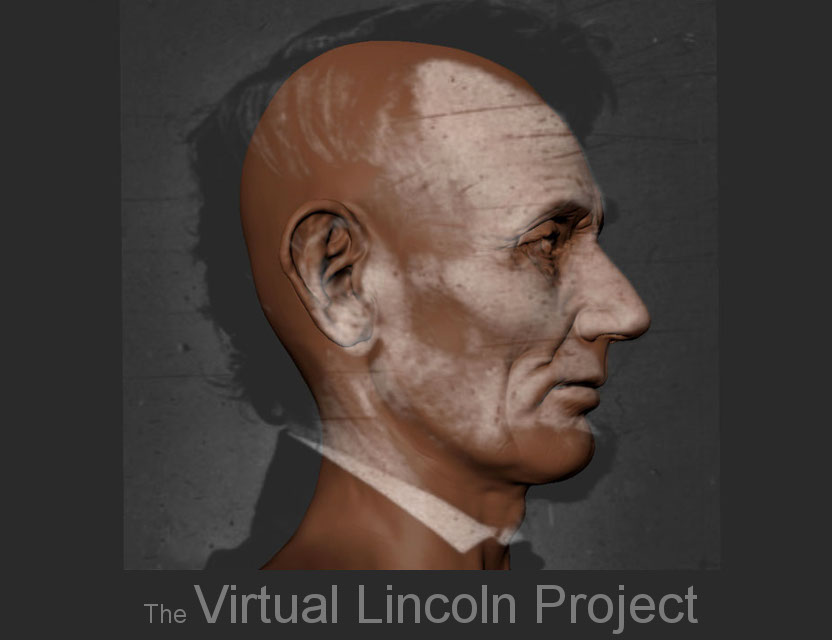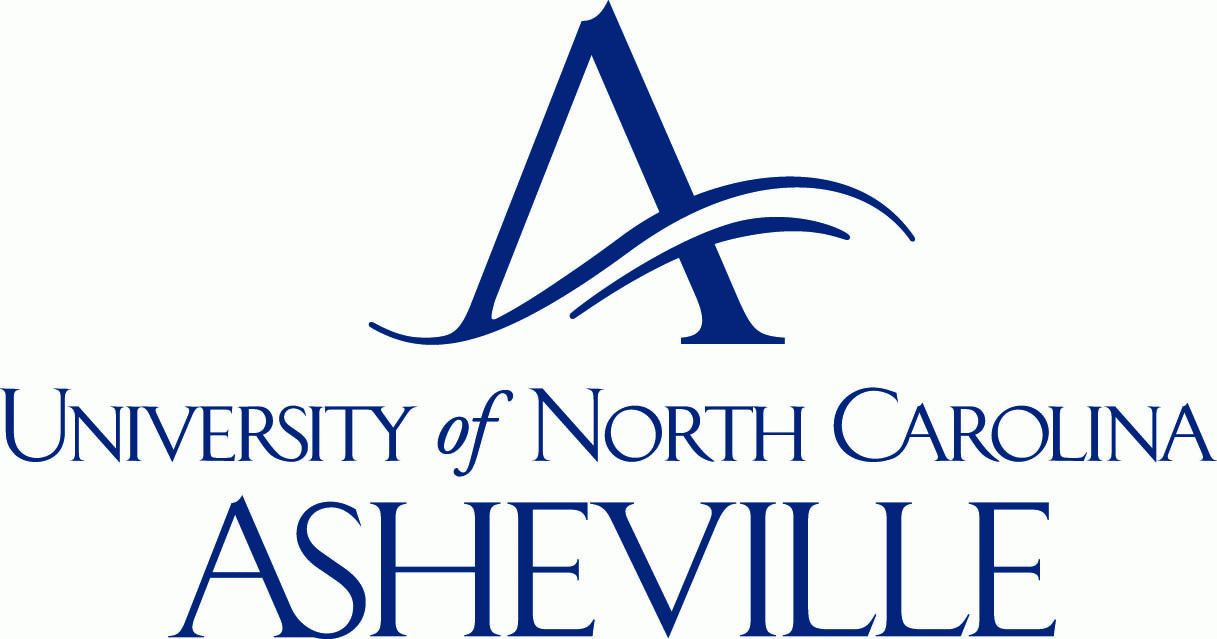FAQs
Frequently Asked Questions

Q. What does the New Media curriculum cover?
A. The New Media curriculum specifically covers animation, video, and interactive design, with a little programming thrown in on the side. There are a lot more applications in other related areas, but the main focus of classroom instruction is on learning the most commonly used professional design tools, equipment, and editing software.
Experimentation, functionality, and story are some of the core concepts emphasized most by the faculty. The New Media curriculum goals aim to expose students to rapidly-changing technologies, to discover alternative creative methods, and to get basic experience working through the various aspects of the production process used in freelance work or industry-standard careers.
Q. What are the job prospects after graduation?
A. Success after graduation depends on many factors. It also differs based on your area of concentration and your own personal portfolio, connections, and work experience.
While the national demand for New Media jobs offers a number of options, there aren't a lot of opportunities around Asheville. The animation, gaming, and film industries are highly-competitive and probably won't be the first place a recent graduate ends up working until they have built up a few years of experience with smaller independent companies. Most employers expect at least 3-5 years of previous work experience in the trade before they hire. Entry level jobs don't pay nearly as much as career experience.
Video and Interactive majors will probably also need to start small looking for freelance jobs, though there is a slightly lower entry-level threshold. Starting your own company or creating independent films are alternative options, but this takes a lot of dedication. Programming and tech-related jobs are in very high demand. Knowing how to use specific professional tools, equipment, and software is one of the big things employers look for.
Most New Media jobs are commission-based, which means you have to constantly be preparing to find other employers, clients, and possibly even a new home closer to the workplace/studio. Grad school and internships are realistically advisable, though work experience, connections, and a portfolio that demonstrates skill and variety are the main factors that will get you hired. There are a lot of directions to go with this degree, but be forewarned that the careers generally are very labor intensive and competitive, often with short deadlines, long hours, and little credit. Of course, these jobs can be very rewarding as well, or else nobody would want to go into this field.
Q. What are the benefits of a New Media career?
A. Most people want to have a career they enjoy. With New Media, getting to make cool things every day is like the most awesome job description ever. Your films or designs might be seen by hundreds or thousands of people online or in theaters. Or maybe you produce an animated short or game and feel really happy with the overall result. One of the best things about this field is you get to be surrounded by lots of other talented creative people that inspire you to get even better at what you do. You never stop learning or striving to create what interests you.
Q. What are the faculty like?
A. The faculty are all knowledgeable about their subject areas and are willing to help students. They do tend to leave most projects very open-ended and that can be either very liberating or else kind of frustrating that they aren't spending a lot of time instructing how to do stuff. You really have to ask them questions and do a lot of research on your own to get the most out of the classes. There is a greater emphasis on class critiques rather than tutorials or lectures. The professors also don't provide long-term projects or many group projects, which can be limiting factor in terms of developing collaboration skills and specialization in one area.
Q. What is the learning curve for the software?
A. Anyone can learn the basic use of any of these programs; it's mastering the software that is much harder to accomplish. Unfortunately, it isn't really possible to learn the nuances of every single program available on the market today. Focus efforts on understanding the tools that relate to your area of interest, and maintain proficiency with a few others that might prove useful to know someday.
Q. Which NM track should I choose?
A. It's required to take at least one intro class for all the concentration areas, so just take that time to explore different ideas and you will eventually develop a sense of what you really want to do. All three NM tracks offer a foundation that can be used to go into various career paths, so don't feel limited by what the curriculum offers.
Q. How time-intensive are New Media classes?
A. Many a project has been finished the night before a deadline. It should come as no surprise that most of those projects look rather sorry for themselves. If you want to turn in something that looks good, it will definitely take more than several hours to complete. Tutorial videos and extra practice using equipment and software outside of class are also necessary to be successful, even though these are not directly required by most professors.
Q. How does Undergraduate Research work?
A. Undergraduate Research is a special independent study course where students get to choose any topic they are interested in and make a cool project relating to it. It is preferable that the subject not already be covered in the existing curriculum. The student only needs to talk to their advisor about setting this up, and the faculty will take care of most of the paperwork. Credit hours are flexible based on time commitment, but they usually range from 2-4 credit hours. It is suggested to do undergraduate research during sophomore or junior years, since the Senior Capstone Project tends to be very time-intensive.
Q. There's a lot of programming, science, and math prerequisites. Are these classes hard, and how much do they factor into the major?
A. These classes are integrated into the NM curriculum since they might be useful if you are wanting to go into a field that involves technical engineering, coding, or software development. Lots of students end up getting jobs that are not what they majored in during college, so having a little extra knowledge in programming may come in handy, especially with tech-related jobs being in such high demand. From an artist/designer's perspective, it can seem like these classes have less practical application than taking any form of art class elective instead, but hopefully more alternative class options will be made available in the future.
The difficulty varies by instructor and individual, but the precalculus and programming classes seem to prove the most challenging to learn for most people. If you're truly dreading taking these classes, let it be honestly said that none of them are really that unbearable, and anyone can pass with a C. The professors are pretty chill, and there are still plenty of interesting things to be learned in these classes if you try to just make the most of the situation.
Q. New Media looks kind of interesting, but I don't like computers. Would NM be a good major for me?
A. Even though there is a lot of emphasis on using software and technology, New Media really is all about creative ideas. The tools may seem complicated and alienating at first, but getting used to the interfaces really just requires a little patience and practice, as with learning any trade skill.
Q. Will the critiques destroy my self-esteem?
A. The first time you have to show your project to the class to critique, it can be kind of painful. People will often share their brutally honest opinions about the project you put a lot of time into. It's not intended to be a negative criticism to hurt anyone's feelings, but rather a way to use feedback to go back and improve designs. This is preparation for the real world. Just don't take anything personally and be open to suggestions, and it isn't that bad.
Q. Is purchasing the Adobe Creative Cloud worth it?
A. If you're a video or interactive student who will frequently use video editing and image editing programs, then yup. For as much as it is used in the New Media department, the monthly subscription is worth the relatively low pricetag. There aren't a lot of textbooks required for classes, so investing in any kind of software, hardware, books, magazines, supplies, equipment, or online courses will also probably be beneficial options. If you're strapped for cash, there are tons of alternative freeware and student trial options available as well
Q. Transitioning after college?
A. Finding a job immediately after graduation is hard, even for students who did reasonably well in their classes. Don't get discouraged. Just keep applying everywhere and keep making stuff for your portfolio. Try to build up a network of connections and get recognition by whatever means necessary. A lot of graduates try to freelance. Freelancing can serve as a supplimentary income, but finding clients isn't easy and commissions can never truly substitute for a full-time salary profession.
Q. What is the shortcut to access the server?
A. Ctrl+K on the Macs in Rooms 201 and 203. The username is your UNCA student username.
https://nm.unca.edu/~scsinger/server_instructions.html
Q. What is the code to unlock the lab doors?
A. Go ask for a yellow card pass from Tina McCants.
Q. HELP!!!!
A. Check out the Multimedia Resources page, or if the situation does not require immediate attention, try the New Media Facebook pages, where alumni and other students can sometimes help out.
Q. ARGGGGHHHH! I lost my flash drive with all my projects on it!
A. Check both labs to see if anyone found the drive. Lost drives usually reappear on the front whiteboard. Also check in with Tina to see if anyone turned in missing belongings to her.
Q. Faculty office hours?
A. Faculty office hours are typically posted next to the doors of their offices, or you can ask Tina.
Q. Tina's not in her office and I need to check out a camera?!
A. Try contacting Sean or the library equipment checkout at the front desk.
Q. Tips for group projects?
A. Communicate. Set realistic goals. Don't be a jerk to your group members and try to follow through with what you say you will do. Bad experiences with team members can be avoided if everyone just tries to utilize eachother's different strengths and get along.
Q. What is the meaning of life?
A. 42.
Q. What happened to MMAS?
A. Multimedia Arts and Science was the name of the experimental STEAM program that was renamed New Media in 2011. MMAS focused on exploring cross-curriculum topics relating to the convergence of technology, science and art. New Media only recently became a fully fledged department due to the increasing number of enrolled students.
Q. NMAC, New MAC, or NewMAC?
A. The New Media Arts Council uses these abbreviations interchangeably. NMAC is the proper acronym, but NewMAC is used most frequently in casual conversation.












